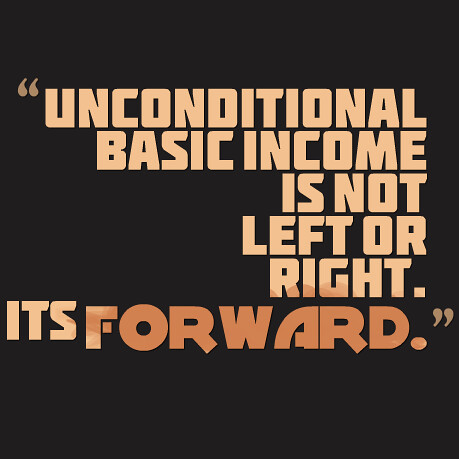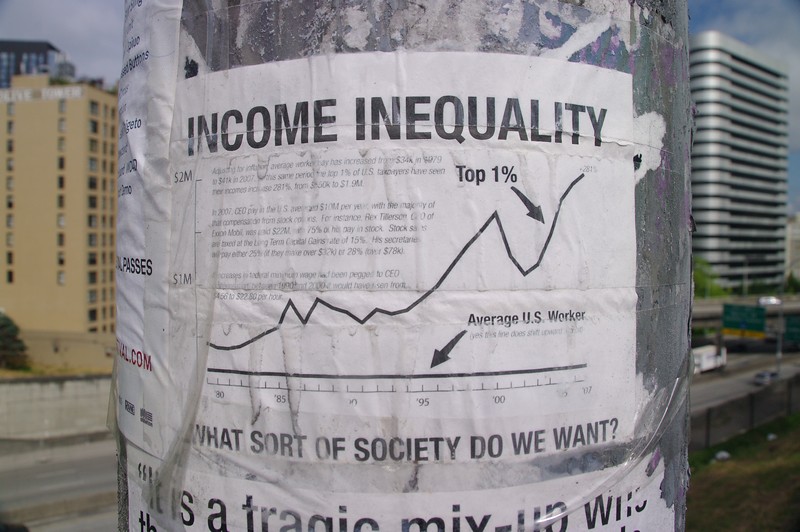 The UK benefits system is complex and this is just one reason why some people fall through the safety net. There are criticisms that it doesn’t reward work and doesn’t provide sufficient incentives to move off benefits and into work. One rather radical policy that has been discussed in numerous countries is the idea of a ‘Basic Income’.
The UK benefits system is complex and this is just one reason why some people fall through the safety net. There are criticisms that it doesn’t reward work and doesn’t provide sufficient incentives to move off benefits and into work. One rather radical policy that has been discussed in numerous countries is the idea of a ‘Basic Income’.
The Basic Income or Citizen’s Income is a policy where individuals receive a regular payment from the government, essentially for doing nothing. The income is paid and aims to cover basic living costs and on top of this, individuals can then work, earn income and pay tax on it. Experiments of this policy are already in place and over the next few years, we may see many more being trialled and much discussion of the possibility of implementing this in the UK. We tend to be fairly risk averse when it comes to radical policies and so while we may see discussion of it in the UK, I imagine we’ll want to see the relative success of the policy in other countries first!
There are many variations of the scheme and lots of questions that need addressing. Will it encourage people to work more or less? Might it reduce the stigma of claiming benefits, if this is a basic income that everyone receives? Does it simplify the system and hence provide more people with a basic income thus targeting poverty?
Some proposals have this payment as a universal one – non means tested and not conditional on anything.  Other proposals, including one in Finland, sees just the unemployed receive the benefit and appears to be a social experiment to see if such a policy discourages the unemployed from taking jobs. Traditionally individuals receive a benefit if they are out of work, but this benefit can be cut (in some cases quite substantially) if they begin to work. This creates a disincentive to supply labour. However, under the basic income scheme, those who moved into work would continue to receive the basic income payment and hence the disincentive effect is removed. The policy thus creates a basic level of economic security. As Howard Reed and Stewart Lansley argue, it would offer:
Other proposals, including one in Finland, sees just the unemployed receive the benefit and appears to be a social experiment to see if such a policy discourages the unemployed from taking jobs. Traditionally individuals receive a benefit if they are out of work, but this benefit can be cut (in some cases quite substantially) if they begin to work. This creates a disincentive to supply labour. However, under the basic income scheme, those who moved into work would continue to receive the basic income payment and hence the disincentive effect is removed. The policy thus creates a basic level of economic security. As Howard Reed and Stewart Lansley argue, it would offer:
“…financial independence and freedom of choice for individuals between work and leisure, education and caring, while recognising the huge value of unpaid work”.
There isn’t universal support for this type of scheme and many remain very cautious about such a radical policy and how the incentives will work. Key questions focus around the marginal rate of income tax that might be needed to finance such a policy. Furthermore, there is discussion about the equity of the policy if it is universal and hence non means-tested.
In Switzerland, the policy was put to a public referendum and it was rejected, with 75% of voters voting against such a policy. However, with changes in the structure of economies and, in many countries, technological change increasingly leading to automation, some argue that such a system will help to protect people. Lord Skidelsky, Professor of Political Economy at Warwick University said:
“Credible estimates suggest it will be technically possible to automate between a quarter and a third of all current jobs in the western world within 20 years … It [Basic Income] would ensure the benefits of automation were shared by the many, not just the few.”
Basic Income or Citizen’s Income is certainly something we are likely to hear a lot about during 2017. Whether or not the time has come for implementation is another matter, but it’s a good idea now to look into both sides and the relative success of the upcoming trials around the world.
8 basic income experiments to watch out for in 2017 Business Insider, Chris Weller (24/1/17)
What is basic income? Basic Income Earth Network (January 2017)
Finland trials basic income for unemployed The Guardian, Jon Henley (3/1/17)
Howard Reed and Stewart Lansley, Universal Basic Income: An idea whose time has come? Citizen’s Income Trust (14/6/16)
Is the world ready for a guaranteed basic income? Freakonomics, Stephen Dubner (13/4/16)
France’s Benoit Hamon rouses Socialists with basic income plan BBC News, Lucy Williamson (24/1/17)
Universal basic income trials being considered in Scotland The Guardian, Libby Brooks (1/1/17)
Questions
- What is basic income?
- What are three advantages of this policy? If you can, try to use a diagram to explain why this is an advantage.
- What are three disadvantages of moving towards this type of policy?
- Why does the provision of benefits affect an individual’s labour supply decision?
- Do you think that income tax would have to rise in order to finance this policy? Do you think high income earners would be prepared to pay a higher rate of tax in order to receive the basic income?
- If the trials showed that the policy did create an incentive to work in countries like Finland, do you think the results would also occur in the UK?